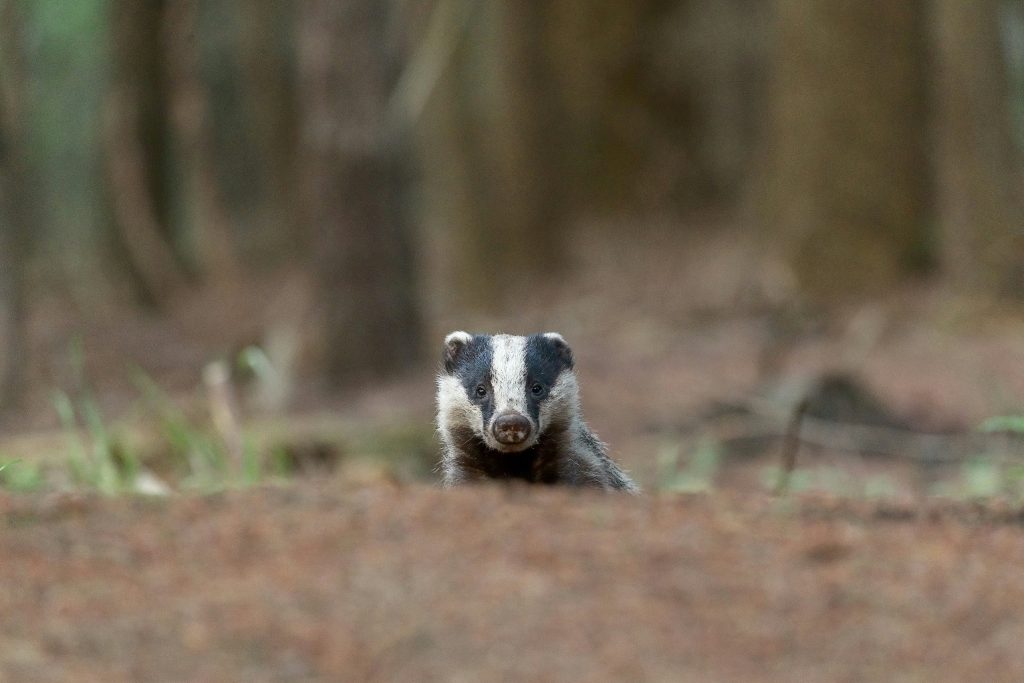Across the United Kingdom, there is a growing problem with wildlife crime.
Our investigators are investigating more incidents of badger baiting, hunting with dogs, hare coursing, and deer hunting.
Wildlife crime: Badger baiting

Badger baiting is a brutal and illegal blood sport that involves setting dogs on badgers. Although outlawed in the UK since 1835, it persists covertly to this day. This practice is incredibly cruel to both the badgers and the dogs involved.
Badger baiting typically involves sending terrier-type dogs into badger setts to locate and hold the badgers in place while baiters dig them out. The badgers are then dragged out and subjected to attacks by the dogs. To prolong the fight and reduce the risk to the dogs, badgers are often deliberately injured beforehand. This can include breaking their jaws, teeth, or limbs, and sometimes mutilating them by cutting tendons or filing down their claws. These injuries cause immense suffering, and the badgers are eventually killed in extremely violent ways, such as being beaten or shot.
The dogs used in badger baiting also suffer significant harm. They are often injured by the badgers’ powerful claws and teeth. These injuries can be severe, involving deep cuts and broken bones. Because taking the dogs to a vet could expose the illegal activity, baiters typically stitch up the wounds themselves without any anaesthetic, leading to further pain and risk of infection for the dogs. In some cases, if a dog does not perform well, it may be shot or abandoned.
Despite legal protections, enforcement is challenging, and the penalties for those caught are often lenient. This has led to continued incidents of badger baiting, sometimes linked to other criminal activities.
Wildlife crime: Fox hunting and hunting with dogs

Fox hunting is a blood sport that involves tracking, chasing, and killing foxes using a pack of trained hounds. Participants often follow the hunt on horseback, although they can also be on foot or in vehicles.
The practice is highly controversial due to the significant suffering it causes to foxes. During the hunt, foxes are pursued to the point of exhaustion, causing extreme stress. If they seek refuge underground, hunters often send terriers to flush them out, leading to brutal fights. Post-mortems of hunted foxes reveal that they often die from multiple bites, enduring significant pain and trauma before death.
The dogs used in fox hunting are trained to chase and kill foxes, but this too has a dark side. The training can be harsh, and dogs can suffer injuries during hunts. While proponents argue that the sport is a form of pest control, there is little evidence to support this claim. In fact, the practice of capturing and releasing foxes specifically for hunting has been documented, further questioning its legitimacy as pest control.
Fox hunting with hounds was banned in England, Wales, and Scotland in the early 2000s under various acts, including the Hunting Act 2004. However, enforcement of these laws remains challenging, and illegal hunts still occur.
What is AWIP doing to end wildlife crime?

The local police, often through dedicated wildlife crime officers, are the primary responders for investigating wildlife crimes. They work on the ground to enforce laws and respond to reports.
If you witness a wildlife crime in progress or if there’s an immediate threat to wildlife, call 999 to report it to the police as an emergency.
For non-urgent reports, call the non-emergency police number 101. This connects you to your local police force where you can ask to speak with a wildlife crime officer if available. You can also use the police.uk website to identify your local police force.
If you wish to report a wildlife crime anonymously, you can contact Crimestoppers at 0800 555 111.
You can also report wildlife crime to the Animal Welfare Investigations Project. Please use our secure online form to report wildlife crime.

